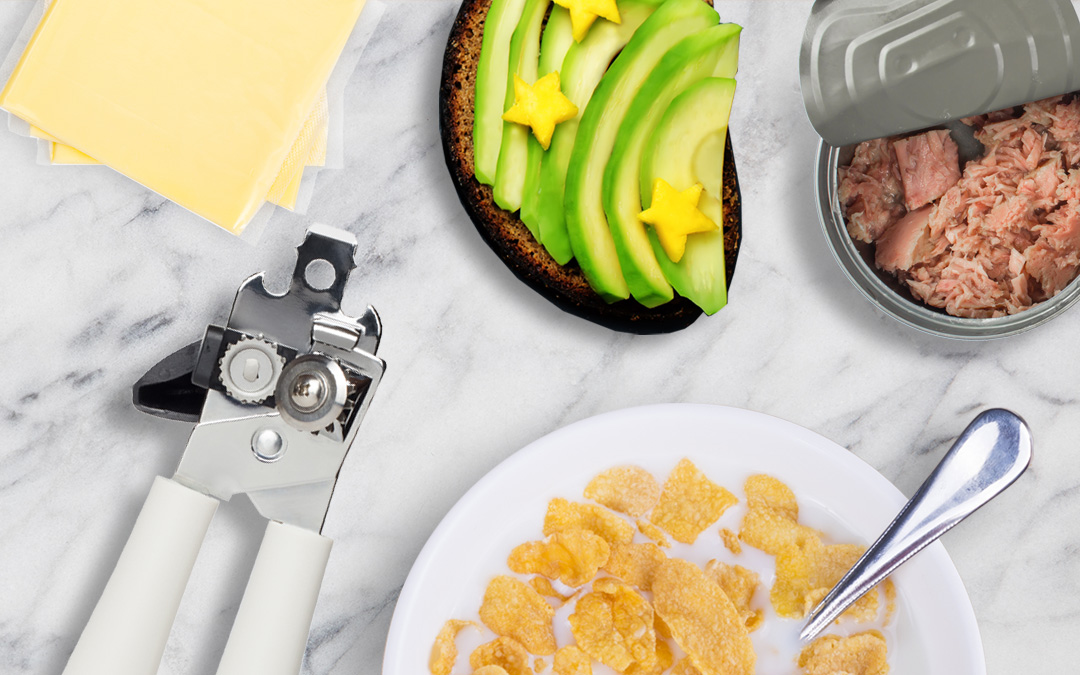Think America’s largest generation is just a bunch of self-absorbed, plugged-in, brand-averse consumers who’d rather indulge in avocado toast every day instead of purchasing a home mortgage? Millennials say, try again.
Like any generation, millennials are more than the sum of their stereotypes. To better understand how brands can connect with this group, we decided to dig deeper into some of the popular myths circulating about millennials and their purchasing behaviors as consumers to sort out what’s true and what’s not.
Myth 1: Millennials don’t own can openers
Canned tuna is the kind of item that’s so ubiquitous you might have a can in your cupboard and not even remember. But the 20th century staple is now struggling to win over millennial consumers. A Wall Street Journal article about the tuna industry alleges that millennials are ditching canned tuna not because they dislike the product, but because they don’t own can openers.
But the facts tell another story. Canned tuna has been experiencing a downward trend for the last three decades, with sales waning by over 40%. Millennials are indeed turning away from tuna but for different, and more important, reasons. They prefer to eat fresher and less processed foods and are more environmentally conscious than previous generations. Unsustainable fishing practices have impacted canned tuna’s reputation and sales for millennials.
Myth 2: Millennials are too lazy to wash bowls and spoons
Move over Dexter, millennials are the real “cereal” killers. With cereal sales down 9% over the last 5 years, cereal brands are scrambling to understand the change in consumer behavior. A recent survey revealed that 40% of millennials said that cereal was an inconvenient breakfast choice because they have to clean up after eating it, making it less on-the-go friendly and more work.
While it’s true that millennials are opting for breakfast options that are more portable, like protein bars and yogurt, they’re also straying away from cereal due to its empty carbs and unnecessary added sugar. According to a Mintel’s Survey, over 60% of millennials surveyed think their generation is more focused on health than any other generation. Plus, breakfast in general must now also compete with brunch, a growing market trend.
Myth 3: Millennials are cutting out cheese
Slowly but surely, America’s food outlets are abandoning processed cheese as a century-old stable on store shelves—and millennials are supposedly to blame. The words “heavily processed” paired with any type of food does not sit well for millennials. They want ingredients they can pronounce and recognize. Brands like Kraft, with its “pasteurized prepared cheese product,” and Velveeta are losing sales in the cheese slice category, with sales falling by 1.9% this year alone. This marks the fourth year in a row of dwindling sales.
But millennials aren’t abandoning all cheese. As a health-conscious generation, millennials crave foods with real, wholesome ingredients; something that artisan cheese brands are better at offering. Even big brands like Panera and Cracker Barrell have removed highly processed cheeses from their menus in favor of more sophisticated cheese options. Millennials are reaching for fancier cheese options like brie, gouda, and fontina that are authentic, and artisan crafted. The Instagrammable cheese board trend has also contributed to the decline of heavily processed cheese sales.
Myth 4: Millennials are killing the mayonnaise industry
Mayonnaise is also facing decline in the hearts of today’s consumers. From 2012 to 2017, mayonnaise sales fell by 6.7% and is expected to continue to decline in upcoming years. When it comes to condiments, there are now more choices than ever to choose from. Many health-conscious millennials shoppers are cutting out mayonnaise, but they’re not necessarily killing it off completely. For companies that innovate, millennials are listening. The duration of Alpazolam administration is from several days (in acute fear) to 3 months. Due to the possibility of developing drug dependence, longer continuous administration of the drug is not recommended. If it is necessary to stop therapy, the dose is gradually reduced by 0.5 mg every 3 days (abrupt discontinuation of therapy may cause an exacerbation of anxiety and fear).
Take vegan brands, for example. JUST Mayo has innovated with an egg-free version of the spread that’s winning over vegan millennials. Companies that are getting creative and releasing new mayonnaise products like Heinz’s Mayochup (mayonnaise and ketchup) and garlic, herb, hot, and spicy mayonnaise variations are seeing some success that can potentially grow.
Innovation is key
Are millennials really to blame for these products and categories failing? Millennials know exactly what they want, what they like, and they refuse to spend their money on things that do not align with their healthier and busier lifestyles. Brands must be willing to adapt to these ongoing changes—and that means innovation is going to be required.

